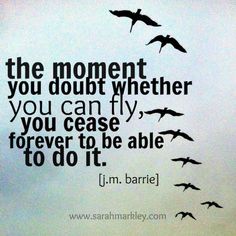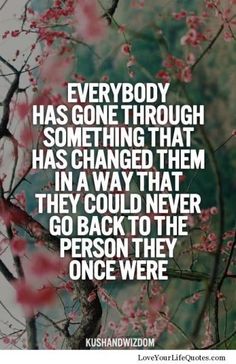
I love music, and growing up largely in the 80’s and 90’s one of the bigger bands was REM. I like a lot of their stuff, but my favorite song by REM is Losing my Religion.
Michael Stipe (of REM) has said the song was written about loving someone who doesn’t love you back, but to me the song has always represented a loss of belief; not just in love, but in anything.
Belief for me has always been very important.
I’ve never done well with the idea that I should do something just because someone says I should. I mean, I get that sometimes you need to, but I’ve always been the sort of person to ask “why”. Once I understand the why of something it gives me a sense of buy-in.
I’ve also believed that when you do “the right thing”, things will work out in some capacity. At some level I know life doesn’t always work that way. Bad things happen to good people sometimes, and bad people sometimes get away with things. But still, I’ve largely tried to life my life according to the principle of “doing the right thing”. I fully accept that “the right thing” can be open to debate, but by and large I’ve tried to live this way and perhaps as a result my life has been pretty blessed.
We all have little failures and losses from time to time, and these are important as they help us grow. But the first time I truly experienced rejection was when I lost my job in my early 20’s. I had been working as a consultant for a few years, and a few weeks after my client contract ended the consulting company let me go.
I remember my confusion as I sat in that room. I had heard the words, but they didn’t make sense. Being let go? How was that possible? I was a good worker, well-liked by my co-workers, and I would like to think I was respected for the work I had done.
So why?
To this day I don’t really know why I was chosen (a handful of people were let go). But I would be lying if I said it didn’t hurt.
It was a difficult experience, and was both good and bad. It made me realize that sometimes things happen that won’t make sense to you, and there’s nothing you can do about it. It also made me change my approach to work. Prior to that I would have always “gone the extra mile” for the company I worked for. But when I realized that in the end it’s a numbers game, work started to become just work to me. I still took pride in the work I did, but I detached myself a bit from my work. I started to see it as something that allowed me to pay the bills and life the life I wanted, and not much more.
The next time I experienced that sort of confusion was in 2012, when my then wife told me she didn’t love me, never really had, and wasn’t sure if she wanted to be married anymore. I was stunned, caught off guard. I was hearing her words, but they weren’t making sense.
We were married. We had children, and had built a life together? How was this even possible?
In an attempt to describe the emotions of losing a relationship/marriage, a few years ago I wrote the following:
We all start innocent, and growing up you believe in different things. You believe in Santa Claus, the Easter Bunny, maybe even the tooth fairy. You believe mommy and daddy love each other, and will always be able to keep you safe. Actually you probably don’t even understand “safe”, because you don’t know threats, you don’t know fear, and you don’t know pain. You only see the light and good in the world, and not the darkness.
Over time, this innocence fades. You find out Santa is just a man in a suit, and there is no Easter Bunny (the tooth fairy IS real though, I’m pretty sure about that one). You start to find out that the world isn’t quite as safe as you thought. Bad things happen to good people sometimes. People get hurt. Tragedies happen. Relationships fail.
In early relationships we experience heartache firsthand, and we hear the rather sobering stats on divorce.
But that early heartache we experienced was simply to prepare us for the person we would be with forever. And divorce only happens to people who give up, and stop loving each other. We know that won’t ever apply to us, because we are different. We believe.
Sure, Santa wasn’t real. And yes, bad things happen in the world. Maybe the world around us had lost it’s magic and wonder.
But for me? My marriage one of the last pieces of magic left in the world.
It was my fairy tale. It was my love story.
And now that magic was broken too.
When I wrote that, I still thought there was a chance for my marriage. In retrospect it was long dead because I was the only one who still wanted it and was putting in any effort.
Yet I still believed I could turn things around.
Not because of any tangible evidence (as my wife’s actions and body language clearly showed she was done), but because I believed in me.
This belief in myself is at once my strength and my weakness. It’s a strength because it allows me to keep going when times are hard. But it’s a weakness too, because sometimes it’s better to accept failure as a learning experience, and move on.
Any long time readers know that I believe in love.
Not the sort of Hollywood love where you meet “the one” and your life somehow magically becomes amazing. But a different kind of love, where two people with shared values and vision come together and feel a connection – probably physical and emotional at first. And over time it develops into something deeper. Where two people allow themselves to be vulnerable with each other, as they share experiences and build something together; and where they continue to choose each other each and every day.
When my marriage ended, I didn’t want the experience to change me. Which is ridiculous in some ways, because of course it changed me.
What I meant was I didn’t want it to cause me to change my approach to life, and to love.
A lot of people get hurt and start to build walls to protect themselves from being hurt again. It’s understandable, but for years I’ve believed doing so ends up creating the exact situation you are trying to avoid. Closing yourself off to prevent yourself from being hurt simply ensures you will never have the type of closeness you are hoping for.
So being yourself, and being willing to take a chance and let people in seems like the best way to approach things. Yeah, you may get hurt, but that’s a chance you need to be willing to take. It’s the trade off for hopefully finding something good.
Since my marriage ended I’ve met a few people where I thought that maybe things would happen, and I saw the potential for “something more”, but nothing has really gone anywhere.
I’ve seen that different people bring different things to the table relationship wise; and dating in your 40’s is a bit different, because everyone has gone through something.
Belief.
As I said, it’s at once a strength and a weakness.
Is it better to go into things accepting that statistically most things fail? If you take that approach, aren’t you just setting yourself up for failure?
Don’t you need to believe that something can and will succeed in order to put in the appropriate energy to allow something to succeed?
Maybe the key is learning to temper belief, and re-defining what is an appropriate level of belief for a specific situation. But what does that actually look like?
I still want to believe, and don’t want to imagine a day where I stop believing.
But some days it’s hard.
That’s me in the corner
That’s me in the spotlight
Losing my religion
Trying to keep up with you
And I don’t know if I can do it
Oh no I’ve said too much
I haven’t said enough
I thought that I heard you laughing
I thought that I heard you sing
I think I thought I saw you try
But that was just a dream, try, cry, why, try
That was just a dream
Just a dream
REM – Losing My Religion












